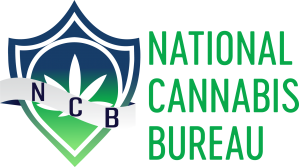Cannabis is known by different names around the world; in South Africa, it is most commonly referred to as “dagga” (in Afrikaans) or “umthunzi wez’nkukhu” (in Zulu), which translates to “chicken shade.” While South Africa, like Japan, has a long history of cannabis cultivation, cannabis is not yet fully legal for adult use, but is decriminalized and generally tolerated so long as it is consumed in private.
Can You Bring Cannabis to South Africa?
Before getting into South African cannabis laws, a word on bringing cannabis to South Africa — Don’t. While a 2019 directive to domestic police clarified that cannabis can be carried on domestic flights within South Africa (so long as the amount is “small,” for “personal consumption,” and possessed “by an adult”), that same directive is very clear: “Cannabis cannot be permitted on an international flight.” Bringing cannabis into South Africa or out of South Africa remains a criminal offense.
Long History of Cannabis Growing In South Africa
While the cannabis plant is believed to have originated somewhere on the Tibetan Plateau, it came to Africa early enough where Africa developed cultivars widely regarded as “landraces,” those bred by the land and not by people. Some of the most famous African landrace cultivars are Red Congolese and Durban Poison. Durban Poison originally came from the region around the port city of Durban, South Africa. This cultivar is known to have exceptionally high levels of THCv and its genetics have been featured in some very famous cultivars, like the Cookies.
The Pondoland area of Eastern Cape (right next to KwaZulu-Natal province, where Durban is located), can be thought of as South Africa’s Emerald Triangle. It is home to nearly a million small-scale unregulated farmers who have been growing for generations and have faced constant threats by the government’s war on drugs. In this region, you’d be more likely to hear cannabis referred to in Zulu than Afrikaans.
Limited Medical Cannabis Program
Medical cannabis use in South Africa is regulated under the 1965 Medicines and Related Substances Act, which splits up substances into schedules from 1 to 8, with 8 being the most toxic and least medically useful. The Medicines Act originally had both plant-derived THC and CBD listed as schedule 7 substances, but in 2019 it was amended and CBD is now a schedule 4 substance, or potentially unscheduled. Schedule 4 substances need a prescription and are purchased at pharmacies but unscheduled CBD products are widely sold across South Africa in a variety of businesses, but have a very low cannabinoid content.
THC products can be used medically but are regulated as a schedule 6 substance and, like Schedule 4 CBD products, can be used only with a prescription from an authorized prescriber and only purchased at pharmacies or a business that holds a dispensing license under the Medicines Act. THC products additionally require a permit from the Department of Health. It is very important to understand the limitations of the Medicines Act, as violations of its provisions around cannabis could carry up to a decade in prison and a fine.
Cannabis is Decriminalized for Personal Use, But Not Legal
The case that ultimately decriminalized cannabis for personal use began with a police raid in 2010 on the home of Myrtle Clarke and Julian Stobbs, who were charged with possession and distribution charges as a result of the raid. Clarke, Stobbs, and a rastafarian named Ras Garreth Prince sued the government in 2017, and a year later in September 2018, the South African high court ruled in their favor, decriminalizing cannabis possession and use in private. The definition of “private” the court used was broad enough where privacy was not just in their home but any private location. While raw plant cannabis was decriminalized, pure isolated THC is still regulated under the Medicines Act. So if you want to use cannabis as legally as possible in South Africa, that means using herbal cannabis or whole plant extracts, and specifically only using them in private spaces. The 1992 Drugs and Drug Trafficking Act is still in effect and still criminalizes any cannabis use that is not in a private space, so make sure any consumption happens in private or you could be looking at between one and two years in prison (and possibly a fine).
Adult Use Legalization Could Pass This Year
As soon as the case decriminalizing cannabis was settled, activists like Clarke and Stobbs were already pressing for more, actual legalization that could create a cannabis industry and help those million traditional farms become legal businesses. Now, it seems like legalization could become a reality in South Africa sometime this year, as a bill is working its way through the legislature for full adult use legalization.
The Cannabis for Private Purposes Bill (CPPB) has been in the works since 2020, and after being stalled for years, is supposed to be voted on sometime during the 2022-2023 legislative session, which gives parliament just four more months to pass it. During the years the CPPB was stalled, the South African Department of Agriculture, Land Reform and Rural Development (DALRRD) created a “cannabis master plan” in the summer of 2021 to address concerns around legalization.
Unfortunately, criticisms of the CPPB were not quelled by the release of DALRRD’s master plan. Cannabis consumption clubs, private spaces for consumption outside the home that exist under decriminalization, are wondering what will happen to them after legalization. Those clubs are joined by traditional farmers, specifically the Umzimvubu Farmers Support Network which represents cannabis farmers in Pondoland, has been openly critical of the CPPB. The farmers and consumption clubs have been joined by the Rastafarian community, and most recently South Africa’s largest union, the Congress of South African Trade Unions (Cosatu).
The post Cannabeginners: How To Legally Use Cannabis In South Africa appeared first on High Times.

